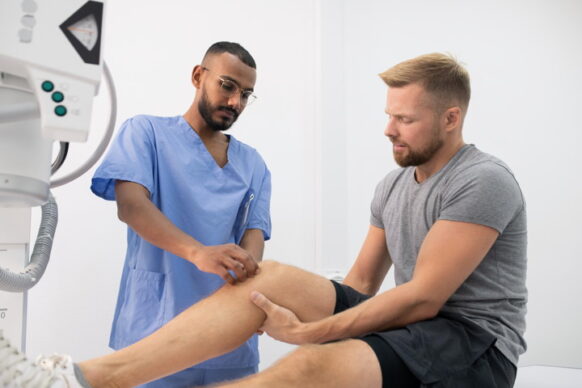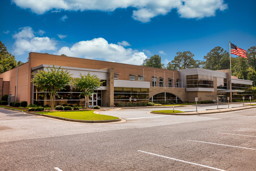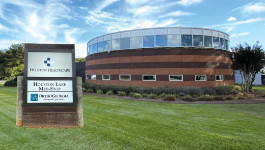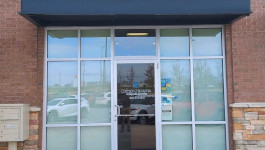Spine Conditions in the Workers’ Compensation Patient – Dr. Wayne Kelley

Types of Back and Neck Pain
Back and neck pain are a common problem affecting eighty percent (80%) of people at some point in their lives. Not everyone’s discomfort is the same—ranging from dull aches to sharp shooting pains—and some signs and symptoms are more troubling than others.
Back and neck pain can progress to discomfort radiating through the back of the legs or down the arms. These may be dull or severe and can be accompanied by numbness, tingling, and weakness. Herniated disc pain is typically unilateral and travels down the leg or arm in a specific pattern. Lumbar spinal stenosis pain is usually bilateral, can involve the entire leg, and becomes worse with standing/walking and better with sitting/bending forward.
How is Back and Neck Pain Treated?
Garden variety back and neck pain will often subside on its own or with the help of over-the-counter (OTC) pain relievers like acetaminophen (Tylenol), ibuprofen (Advil), or naproxen (Aleve). In addition to work injuries, there are conditions that need immediate attention including tumors, infections, bowel or bladder changes, and/or progressive neurological changes.
With conservative care, spine pain tends to improve by six to eight (6-8) weeks. A referral to a spine surgeon is recommended if the arm or leg pain becomes consistent, severe, or accompanied by neurological changes. The cause of pain can be diagnosed with a physical exam and may require imaging studies such as X-rays or MRI.
What are the Goals of Back and Neck Treatment in the Workers’ Compensation Patient?
The first goal in treatment is to decrease symptoms by reducing inflammation with ice or heat, OTC medications, and one to two (1-2) days of rest. After those resting days and light activity, we try to start motion as soon as possible with exercises, stretching, and physical therapy. Often, this will alleviate the pain or help the patient manage expectations. Studies have shown that no more than a couple of days of rest are needed and starting motion early improves function and return-to-work.
Physical therapy can continue until the patient can transition to a home exercise program. Most patients begin to show signs of improvement with these treatment regimens. If the pain continues to be bothersome or neurological symptoms increase, then an MRI can verify the location of the pain generator. The next step may involve a nerve block to decrease irritation around the nerve root. If the pain continues and the MRI findings match the patient’s symptoms, then surgery may be required.
How to Prevent Recurrence
Our last goal of treatment is to prevent a recurrence. This involves a regular exercise program, maintaining a healthy body weight, and learning proper spine biomechanics. Spine care is most efficient with a dedicated spine team who understands the entire spine and the intricate details involved in treating a working patient.
About Dr. Wayne Kelley
Dr. Wayne Kelley, Jr., the author of this article, is one of our board-certified, fellowship-trained orthopedic spine surgeons at OrthoGeorgia. He specializes in the conservative and surgical treatment of all spinal conditions, with special interest and significant experience in cervical spinal problems and degenerative lumbar conditions such as spinal stenosis and disc herniation. He is trained in the newest minimally invasive robot-assisted techniques for nerve decompression and fusion, providing several benefits for patients. Dr. Kelley received his Medical Degree from the Medical University of South Carolina and did his residency with Duke University Medical Center. He is also an eight-year United States Navy veteran. Patients can meet with Dr. Kelley at our Macon Spine and Orthopaedic Center or our office in Dublin, GA.
Workers’ Compensation and Orthopaedic Spine Care in Central GA
At OrthoGeorgia, we are proud to provide both orthopaedic spine care and Workers’ Compensation services, along with a wide range of orthopaedic care services focused on helping patients live their most active and comfortable lives. We recognize the importance of seeing injured employees in a timely fashion and work with both employees and employers to create a comprehensive continuum of care. We specialize in spine, hand, sports medicine, foot & ankle, and total joint care, and work with patients at our offices in Macon, Macon Spine and Orthopaedic Center, Warner Robins, Kathleen, Milledgeville, Dublin, and Hawkinsville. To schedule an appointment with one of our orthopaedic specialists in Central GA, please contact OrthoGeorgia today!

Personalized Orthopaedic Care in Central Georgia
At OrthoGeorgia, we want to help you live a healthier and more comfortable life by giving those in Macon, Warner Robins, Kathleen, Milledgeville, Dublin, Hawkinsville, and the surrounding areas convenient access to the highest quality care. Whether you have been suffering from a sports injury or a common orthopaedic condition, we will determine the cause of your discomfort and craft a personalized treatment plan to bring you relief. To learn more about our services and our physicians, or to schedule an appointment at OrthoGeorgia, please contact us today.







